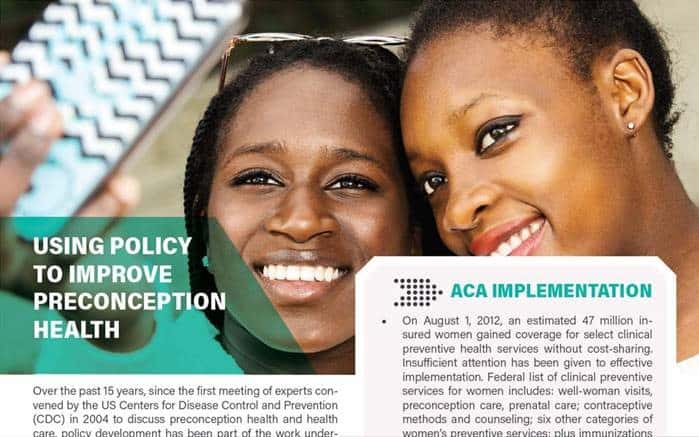Promising Global Practices to Improve Maternal Health Outcomes
Over the past 15 years, policy has been part of the work of the National Preconception Health and Health Care Initiative. What has been achieved in women’s health policy over the past decade is remarkable. In August, 2012, an estimated 47 million women gained coverage for recommended clinical preventive health services-including well-woman visits with preconception care components-without cost-sharing. The uninsured rate among women of reproductive age (15-49 years) dropped from 20.7% to 11.6% between 2010 and 2017, primarily as a result of the Affordable Care Act (ACA) Medicaid expansions and subsidized Marketplace plans. Still more needs to be done and leaders in women’s health and MCH have a key role to play in implementation efforts through both macro-level legislative policy action and other administrative and finance action.
The “large P” Policy opportunities include expansion of Medicaid eligibility for low income adults and/or for women postpartum, as well as maintaining budgets and capacity at public clinics for family planning and other reproductive health services. “Small p” policy opportunities require no new authority or eligibility and include: improving care delivery (e.g., postpartum screening in well-baby visits), structuring interconception care to address risks, applying quality improvement to drive practice change, and using measurement to monitor performance.
Excerpt written by Kay Johnson, Johnson Group Consulting, Inc., PCHHC Policy Workgroup.
